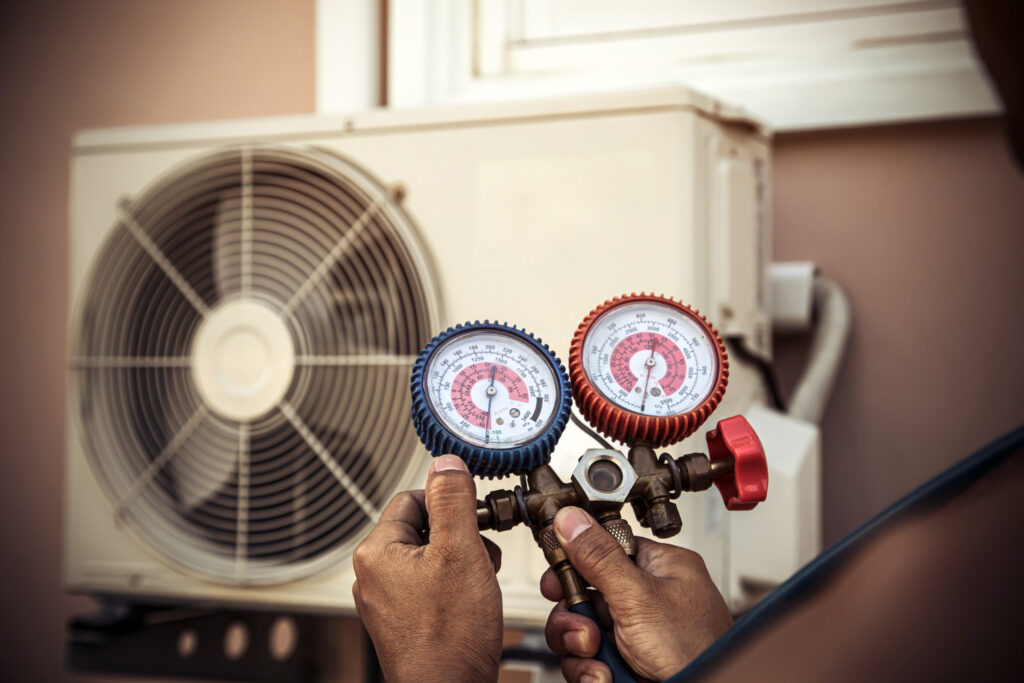Knowing when to replace your heat pump can save you from unexpected breakdowns and costly repairs. Heat pumps are vital for maintaining a comfortable home environment, but they don’t last forever. Recognizing when it’s time for a heat pump replacement can keep your home efficient and comfortable.
Signs Your Heat Pump Is Nearing the End of Its Lifespan
One of the most obvious signs that your heat pump is nearing the end of its lifespan is age. Heat pumps typically last between 10 to 15 years. If your heat pump falls within this range, it’s wise to start planning for a replacement. Older heat pumps are less efficient and prone to mechanical failures, which can affect your home’s comfort and your energy bills.
Another sign is the frequency of breakdowns. If you find yourself needing heat pump repair services frequently, your system might be on its last legs. Constant repairs can add up and eventually outpace the cost of a new heat pump. Our professionals can assess your current system and recommend whether a replacement is necessary.
Persistent issues with heating or cooling performance are also indicators. If some rooms remain cold while others are too warm, your system might be losing its ability to distribute air evenly. This often occurs as internal components wear down and lose efficiency over time. An aging heat pump can struggle to maintain the desired temperature, making your home less comfortable.
Frequent and Costly Repairs
When your heat pump needs frequent repairs, it might be more sensible to invest in a new unit. Multiple service calls can become costly, especially if major components like the compressor or blower motor need replacement. If you find yourself calling our technicians regularly, it could be time for a new heat pump.
Additionally, if repair costs begin to exceed half the value of a new heat pump, a replacement becomes a more cost-effective solution. Major repairs can be a temporary fix, but they won’t eliminate the need for ongoing maintenance and future issues. Our technicians can guide you through the process, helping you determine the most financially sound decision.
Another consideration is the availability of parts. For older heat pumps, finding the required parts can become challenging and expensive. This can lead to longer repair times and higher costs. Upgrading to a new system ensures that you have access to readily available parts and more reliable performance.
Decreased Efficiency and Rising Energy Bills
When your heat pump starts losing efficiency, you’ll likely notice an increase in your energy bills. An aging system has to work harder to maintain the desired temperature, which leads to higher energy consumption. If there’s a sudden spike in your energy bills without a change in your usage, it might be time to consider a heat pump replacement.
Poor efficiency can result from several factors. Dirty or clogged filters, worn-out parts, and low refrigerant levels all contribute. Regular heat pump maintenance is essential to catch these issues early, but if efficiency continues to drop despite routine service, replacement might be necessary. Our professionals can evaluate your system and determine the best course of action.
Apart from energy costs, decreased efficiency also impacts comfort. An inefficient heat pump can struggle to keep your home evenly heated or cooled. Hot and cold spots become more common as the system fails to circulate air effectively. If you notice inconsistent temperatures in different rooms, it might indicate that your heat pump is no longer up to the task.
Benefits of Upgrading to a New Heat Pump
Upgrading to a new heat pump offers several benefits that go beyond just improved efficiency. Modern heat pumps come with advanced features and technologies that enhance performance and comfort. One significant advantage is better energy efficiency, which leads to lower utility bills. Newer models are designed to meet higher energy standards, making them more eco-friendly and cost-effective.
Enhanced home comfort is another key benefit. New heat pumps provide better temperature control and more consistent airflow. Many models offer variable-speed motors and multi-stage compressors, which allow for precise adjustments. This means your home stays at the desired temperature with fewer fluctuations.
Upgrading can also bring improved indoor air quality. Advanced filtration systems in modern heat pumps can remove more pollutants and allergens from the air. This creates a healthier living environment, especially important for family members with respiratory issues.
Additionally, newer heat pumps require less frequent repairs and maintenance. Investing in a new system means fewer unexpected breakdowns and lower repair costs. Our technicians can handle the heat pump installation process seamlessly, ensuring you get the most out of your new system right from the start.
Conclusion
Understanding when to replace your heat pump is crucial for maintaining home comfort and energy efficiency. Recognizing signs like frequent repairs, decreased efficiency, and rising energy bills can help you make an informed decision about heat pump replacement. Upgrading to a modern system offers numerous benefits, including better performance, lower energy costs, and improved indoor air quality.
If you’re experiencing any of these issues with your heat pump, it might be time to consult our professionals. Schedule a heat pump service with AirPoint Heating & Air Conditioning today to explore your options for heat pump replacement in Cerritos and enjoy the benefits a new system can offer. Contact us now to set up an appointment!



